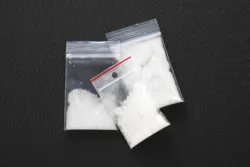Research Finds Blood Pressure Drug Could Cure Addiction

Researchers at The University of Texas at Austin believe they may have discovered that a drug called isradipine can rewire the brains of those suffering from addiction, making them less likely to feel an uncontrollable urge to use.
The study focused on brain circuits thought to be rewired by addiction, including learning, memory, and reward. The outcome indicated that these circuits become associated with drug-related cues in the minds of addicted individuals, causing memories and experiences to make them want to use.
Researchers trained rats to associate a black or white room with cocaine or alcohol until they became addicted to the substances. When allowed to choose which room to enter without any outside influence, the rats almost always entered the room associated with the addictive substance.
After receiving a high dose of isradipine – the drug believed to curb addiction triggers – the rats seemed to have no preference regarding which room they entered. A group of rats that had not received the isradipine did not demonstrate the same results, indicating that the rats’ addictions to alcohol or cocaine no longer influenced their choices.
Isradipine is already approved as safe for human use by the US Food and Drug Administration, which may speed up the trial process as researchers continue to test its effect on addiction. However, scientists originally developed isradipine to lower blood pressure. This may complicate use of the drug for addiction treatment.
With addiction increasingly receiving recognition as a disease rather than a personal or internal conflict, expect to continue to see such studies in the news as researchers hope to find a cure.
Read more about isradipine and its effects at Medical News Today.
Researchers at The University of Texas at Austin believe they may have discovered that a drug called isradipine can rewire the brains of those suffering from addiction, making them less likely to feel an uncontrollable urge to use.
The study focused on brain circuits thought to be rewired by addiction, including learning, memory, and reward. The outcome indicated that these circuits become associated with drug-related cues in the minds of addicted individuals, causing memories and experiences to make them want to use.
Researchers trained rats to associate a black or white room with cocaine or alcohol until they became addicted to the substances. When allowed to choose which room to enter without any outside influence, the rats almost always entered the room associated with the addictive substance.
After receiving a high dose of isradipine – the drug believed to curb addiction triggers – the rats seemed to have no preference regarding which room they entered. A group of rats that had not received the isradipine did not demonstrate the same results, indicating that the rats’ addictions to alcohol or cocaine no longer influenced their choices.
Isradipine is already approved as safe for human use by the US Food and Drug Administration, which may speed up the trial process as researchers continue to test its effect on addiction. However, scientists originally developed isradipine to lower blood pressure. This may complicate use of the drug for addiction treatment.
With addiction increasingly receiving recognition as a disease rather than a personal or internal conflict, expect to continue to see such studies in the news as researchers hope to find a cure.
Read more about isradipine and its effects at Medical News Today.






